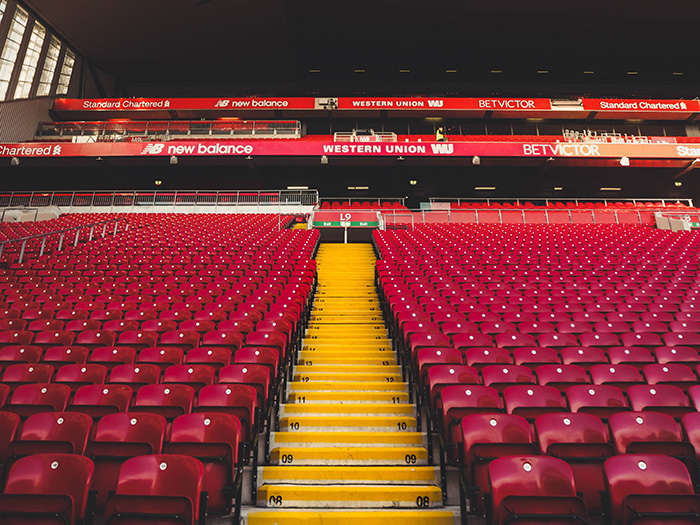Cleaning And Hygiene – The Power Of Planning Ahead

Approximately 70 million feet will troop through UK football stands this season, to enjoy the Premier League, EFL, and Leagues One and Two matches.
Add to that the wealth of community, corporate, other sport and entertainment events that take place, and that increases – significantly.
It’s a lot of feet, which means a lot of cleaning.
The key is to find a method of cleaning that is efficient, quick and gentle – across a range of surfaces.

Your premises will be hugely busy over the coming months and your ground’s facilities need to look good and be clean - both from this visitor debris and this organic damage.
There are a number of reasons why the right type of cleaning and maintenance is so important:
Safety
All those feet coming in and out the stadium - there are bound to be accidents. As stadia grow upwards to increase capacity, the natural tendency for trips increases. To take just one example, away fans have to ascend 14 flights of steps to get to the top of their seating area at St James’s Park. Those steps need to be as safe as possible – according to the Sports Ground Safety Authority, almost two thirds of injuries took place in the stands themselves over the last few years and slips, trips and falls were the cause of 30% of the recorded injuries in football grounds. While all grounds have excellent medical provisions – both within the grounds and through external support – prevention is the best cure. Slippy, muddy surfaces need to be avoided.

Standards
With season tickets costing several hundred pounds and concert tickets coming in a similar price, your customers quite rightly expect a good experience. Good looking walkways, clean seats and a hygienic feel throughout will encourage return visits – even if the results or performances don’t!
Competition
Those high standards will ensure your grounds remain competitive to non‑football performances. In a content‑driven world, where social media can be used for visitors to share all their experiences through real time visual content, you want your stands to look top notch, to attract the best guests and keep monetising the stadium in a range of ways.
Maintenance
It’s not just about cleaning, it’s also about maintenance and protection. By prepping the surfaces correctly, they will look good and feel safe for a lot longer, which can be easier and more cost‑effective, especially when there are so many events taking place one after the other.
Disruption
With less daylight hours and a variety of events, you need to be looking into products that will clean as quickly as possible. Depending on your approach, exterior cleaning can mean disruption - larger spaces to block off, more noise, larger kit and therefore more manpower. Softwashing, which can be carried easily, and applied and quickly rinsed with no hassle, is often a better bet – especially in areas with lots of steps.
Surface protection
Pressure washing stone, cement and wooden surfaces and can erode or damage them and pointing, gravel and sealants can suffer under the high pressure of the spray. This can lead to hollow areas that are prone to letting in water which can freeze, or could result in more vulnerable or porous surfaces, leading to cracks which could develop into larger issues over time. A soft wash is a much more gentle approach and one which offers protection against the elements in the coldest months of the year.
Sealing
Black spot, algae, lichen and other organic stains build up on most external hard surfaces over the Summer and Autumn months - and into Winter if mild - but by using the right kind of product and equipment, followed by the right type of sealant, your cleaning team will be leaving the areas looking better and helping them resist more building up again quickly, eliminating the growth of organic stains on a range of surfaces, from wood to concrete, tarmac to stone. Don’t forget that sealant, it means your cleaning team can prolong the lifespan of outdoor surfaces.











































